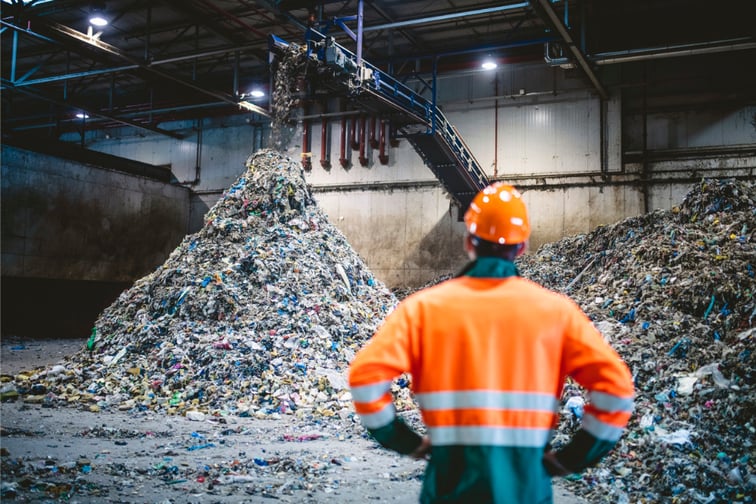

Happy Stan's Recycling, a family-owned recycling business in Port Coquitlam, is facing a daunting increase in insurance costs.
Jamie Kaminsky, the owner of Happy Stan's, stated that insurance companies have raised coverage costs substantially while also increasing deductibles to $250,000 or more.
Kaminsky fears that such high costs may force recycling companies like his to shut down, which could result in recyclable materials being sent to landfills.
He also suspects other recycling companies are experiencing similar increases in insurance costs and that this development may potentially threaten the entire recycling industry.
"This is going to be devastating if we can't find insurance," said Kaminsky.
Kaminsky, who is not the owner of the building but must pay for its insurance, stated that they are in a critical position. He also mentioned that their insurance has been temporarily extended while they try to find a solution to the issue.
According to the Tri-City News, which reached out to several agencies, insurance costs are rising for all businesses, not just recycling companies. The BC Financial Services Authority (BCFSA), which regulates the financial service sector, explained that property and casualty premiums are going up for most insured risks worldwide due to a combination of factors, including losses, under-pricing, increases in reinsurance costs, and inflationary costs. Insurers are allowed to charge premiums based on current market conditions and their risk assessment.
As a result, the BCFSA recommends that businesses work with their insurance brokers to find ways to reduce their risk.
Despite the fact that Happy Stan's has passed monthly inspections from both Metro Vancouver and an insurance company, Kaminsky is concerned that his small business is caught in a global insurance crisis that does not consider local circumstances.
He wonders what the government is doing about the situation, particularly since it has called for more recycling.
Last week, the B.C. government supported 14 companies that recycle plastic waste into new products. Kaminsky suggests that there are very few insurance companies that are willing to insure recycling companies, which makes it harder for them to operate.
Return-It depots and Recycle BC are also facing higher insurance costs.
While Return-It only sets the insurance requirements for collecting refundable beverage containers under the Return-It program, Sandy Sigmund, Vice President of the not-for-profit, product stewardship corporation, stated that there are ways the public can help these small businesses operate without incident, such as disposing of materials like propane tanks and lithium-ion batteries properly.
Recycle BC also asks residents not to throw these items into their recycling bins as they can be dangerous. The manager of stakeholder relations, Ann Danilevich, said that sorting recyclables responsibly can reduce hazards and pointed to the Recycle BC website for more information on proper recycling practices.
